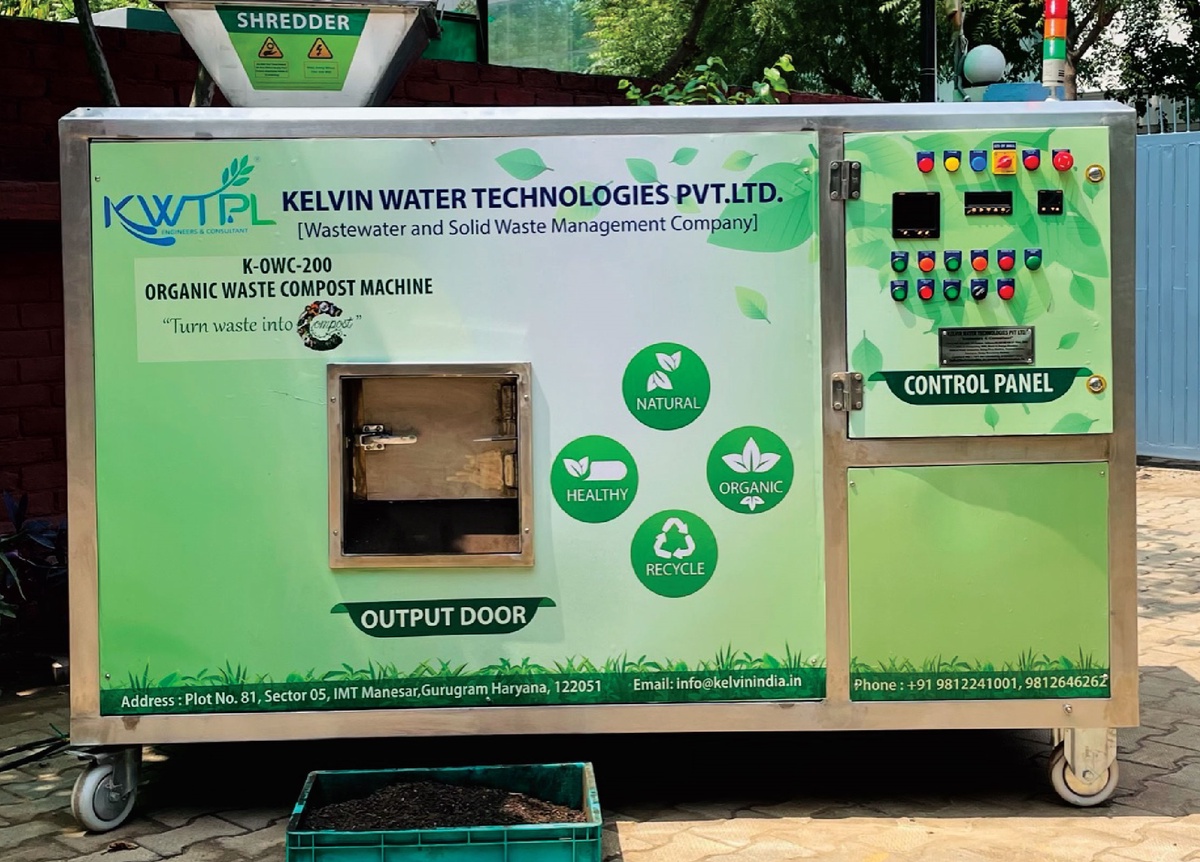Importance of Food Waste Composting Machine
Reduction of Greenhouse Gas Emissions:
Composting machines facilitate aerobic decomposition, reducing the production of methane and mitigating its impact on climate change.
Resource Recovery:
Composting turns food waste into nutrient-rich compost, a valuable resource that can be used to improve soil fertility, structure, and water retention. This contributes to a circular economy by recycling organic matter into a beneficial product.
Waste Diversion from Landfills:
Composting machines divert organic waste from landfills, where it would otherwise contribute to landfill pollution and create environmental challenges.
Soil Enrichment:
The compost produced by these machines serves as an organic fertilizer, enhancing soil health and promoting sustainable agriculture. It improves soil structure, supports microbial activity, and reduces the need for synthetic fertilizers.
Localized Waste Management:
On-site composting with these machines provides a decentralized waste management solution, reducing the need for transportation of food waste to external facilities and minimizing associated carbon emissions.
Energy and Cost Savings:
Composting machines often accelerate the decomposition process, leading to faster production of compost. This efficiency can result in energy savings and cost reductions, especially for businesses and institutions that generate significant amounts of food waste.
Odor Control:
Many composting machines are designed with effective odor control mechanisms, allowing for indoor composting without generating unpleasant smells. This makes them suitable for use in homes, restaurants, and other enclosed spaces.
Educational Tool:
Food waste composting machines can serve as educational tools, raising awareness about the environmental impact of food waste and promoting sustainable practices. They contribute to building a culture of waste reduction and resource conservation.
Community Engagement:
Implementing composting machines in communities fosters a sense of shared responsibility for waste management. Community gardens and shared composting initiatives can further strengthen community engagement.
Types of Food Waste Composter Machines
- In-vessel composters: These machines are designed to handle large volumes of food waste efficiently. They provide controlled conditions for decomposition, such as temperature and air circulation, resulting in faster composting times.
- Worm composters: Also known as Verm composters, these machines use worms to break down organic waste into nutrient-rich vermicompost. They are ideal for small-scale operations or indoor use due to their compact size and odorless nature.
- Bokashi bins: This method involves fermenting food waste using beneficial microorganisms that accelerate the breakdown process. Bokashi bins can be used both indoors and outdoors and are suitable for households or small businesses.
- Industrial-scale digesters: These advanced machines utilize anaerobic digestion technology to convert large quantities of food waste into biogas and nutrient-rich digestate. They are commonly used by commercial establishments like restaurants or supermarkets.
- Automatic composter systems: These innovative machines combine shredding, mixing, and aerating functions to speed up the decomposition process while minimizing odors and pests' presence.
Conclusion:
As we continue to face the challenges of food waste and environmental degradation, we need innovative solutions to ensure a sustainable future. Food waste composting machines offer a practical and effective way to turn organic waste into valuable compost, reducing our reliance on landfills and contributing to a circular economy.
By composting food waste, we not only reduce greenhouse gas emissions but also conserve water resources and mitigate the harmful effects of chemical fertilizers. Additionally, by using a Food Waste Composter machine, individuals and businesses can take an active role in minimizing their ecological footprint while promoting soil health and biodiversity.


No comments yet